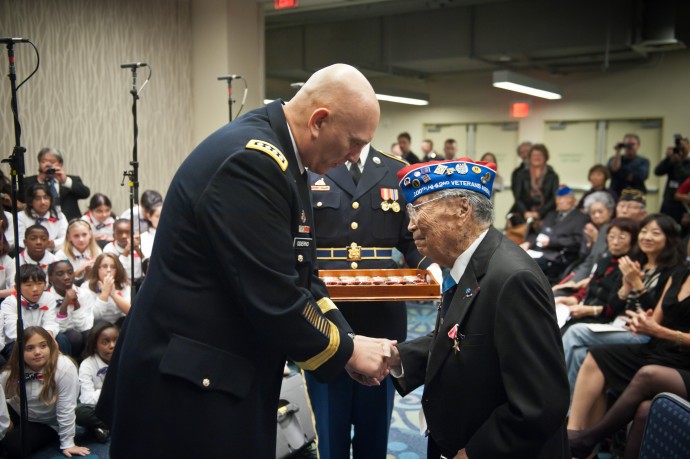
How to Fulfill Something Missing: Research on Lost Loved Ones
The loss of a child is the worst experience of a lifetime, say many parents; but, for children, the loss of a parent can lay the foundation of a lifetime of grievances, says Karolyn Rogers.
“I was only 5 when I lost my father and, while there’s no good time to lose a loved one, it was a tender age to lose him; the circumstances of his death – and how my family dealt with it – left a palpable void,” says Rogers, author of the new book, “When Daddy Comes Home,” which details her journey of healing through researching her father’s death while serving his country in World War II.
The way her family dealt with the devastating loss was by not talking about it, she says.
“I simply adored my daddy, Pfc. Tom T. Wilmeth, and I’d never received closure on his passing. I lived knowing that my children and grandchildren would never know their granddaddy, and I probably would have made better decisions earlier in my life if I had him growing up – or, at least, better understood his passing,” says Rogers, who reviews how researching his life and death finally provided what was missing in her heart.
- Pay attention to spiritual signals. On Feb. 17, 2001, Rogers was brushing her teeth, hurriedly trying to get to a friend’s wedding on time, when, “I remember it clearly; out of nowhere, a white light surrounded me,” she says. “I heard something tell me that I was supposed to tell what it was like to be an orphan with a widowed mother as a result of war.”
- Start investigating what you know. While she knew her mother had two boxes of letters from her father that were kept throughout the years, it felt like there was an invisible boundary between Rogers and those letters. “This exemplifies why so many remain unfulfilled decades after the loss of a loved one; it’s like there’s a scab there that’s protecting you and others,” she says. The process of reviewing the letters was so emotionally fraught that it took nearly a year to complete.
- Ask yourself, “Are there others in my position?” Pfc. Wilmeth died during the waning days of WWII – in Patton’s secret Third Army – a surprise Rogers found out while finally doing the research in her 60s. She figured out she was one of 183,000 American orphans from the war; she wasn’t alone and was able to reach out to many others. Even those family members involved in isolated missing-person cases can find support groups and possibly be guided to helpful resources
- Preserve materials involving your loved one. Over the past century, the media for storing family memories have changed and changed again. They include pen-and-paper letters, emails, and taped voice recordings and videos, as well as digital records. A basic internet search will lead browsers to local and national companies that can professionally save and restore old materials. There are also companies that can help preserve digital files, although a basic external hard drive is an easy way to save them.
About Karolyn Rogers
Karolyn Rogers lost her father when she was a small child. Pfc. Tom T. Wilmeth was killed during Gen. Patton’s advance on Berlin in the waning days of World War II. The loss devastated her family and left Rogers with a lingering void, until she began researching her father’s life. She learned her dad earned the Purple Heart and many other decorations, he was a loving and caring husband and father, as evidenced by the many letters he sent from Europe to his family in Oklahoma. With the hope of inspiring others who’ve suffered loss, Rogers has built a chapel in memory of Pfc. Tom T. Wilmeth and has recently published “When Daddy Comes Home”.